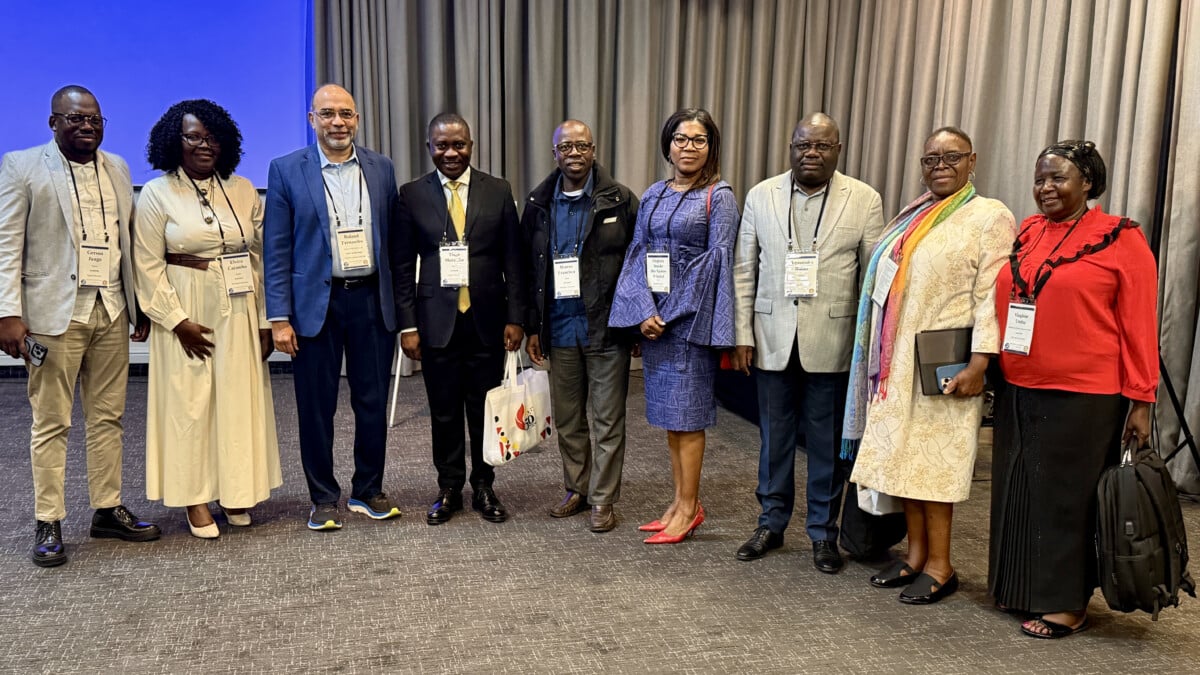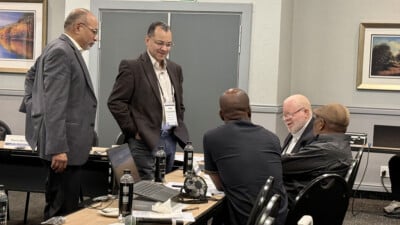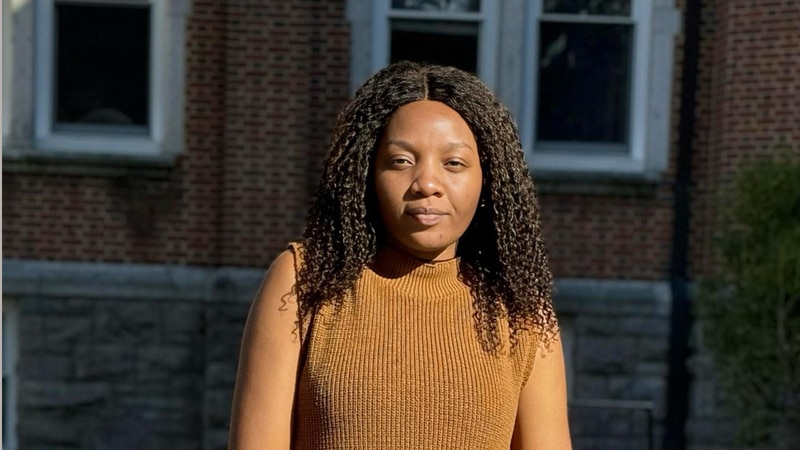Pan-African Methodist Educators Unite for Transformative Collaboration

Members of the Africa Association of Methodist Institutions of Higher Education (AAMIHE) and Roland Fernandes, general secretary for General Board of Higher Education and Ministry, attend a joint conference with the Africa Association of United Methodist Theological Institutions (AAUMTI) focusing on “Pan-African Collaborative Partnerships for Sustainable Development of Higher Education Institutions.”
Conference in Johannesburg strengthens ties between church and academy, advancing education and leadership across Africa
October 29, 2025 | By Susan Clark and Amos Nacimiento
Johannesburg, South Africa — More than 80 leaders, educators and students from Methodist-related institutions across Africa convened in Johannesburg, South Africa, from Oct. 13 -16, for a joint conference of the Africa Association of Methodist Institutions of Higher Education (AAMIHE) and the Africa Association of United Methodist Theological Institutions (AAUMTI). The theme, “Pan-African Collaborative Partnerships for Sustainable Development of Higher Education Institutions,” reflected a shared commitment to advancing education and theological formation across the continent.
The event also welcomed the Board of Directors of the International Association of Methodist Schools, Colleges, and Universities (IAMSCU). The United Methodist Church in South Africa hosted the gathering, which was made possible through partnerships with the General Boards of Higher Education and Ministry and Global Ministries.
Roland Fernandes, general secretary of both agencies, delivered the keynote address, noting the long history of connections between Methodist education and mission in Africa. He acknowledged the contributions of AAMIHE and AAUMTI as two associations that helped in the creation of a stronger connection between the church and the academy on the continent. Yet he challenged conference participants to use the opportunity of the conference to explore ways of promoting better alignment between the associations and the agencies. Fernandes added that this would help build “a common project for a better future that prepares us well to address emerging challenges and opportunities in Africa.”

Roland Fernandes, general secretary of GBHEM, (left) and Amos Nacimiento, special assistant to the general secretary for Global Education (second from left), talk with members of the Africa Association of United Methodist Theological Institutions (AAUMTI) during a joint conference.
He acknowledged the continent’s challenges—ranging from the withdrawal of foreign aid and persistent health crises to the legacy of colonialism and ongoing conflicts—but also pointed to signs of resilience and hope. He shared about the changing culture at Global Ministries and GBHEM, which now have a Mission Engagement Unit that promotes a unified presence and integrated structure in each region, streamlining their work and sharing resources. He introduced This Moment Matters, the agencies’ faith-based response to the current context of global instability, humanitarian crises and shifting political landscapes. The initiative has five focus areas for granting and fundraising: education, agriculture and food security, health, migration and peace. Acknowledging the massive insurmountable gap caused by the withdrawal of U.S. government funds, he shared the recent agency boards’ decisions to approve supplementary funding to support this work, with Africa as a priority.
The conference featured presentations from scholars and church leaders from across the continent, who spoke on several themes relevant to Methodist higher education in Africa. Presentations explored African Methodism and Wesleyan perspectives on higher education, intra-African collaboration and partnerships, transformative leadership, and the challenges facing theological education across the continent. Speakers emphasized the importance of spiritual orientation for institutions and analyzed the obstacles confronting Methodist higher education, proposing actionable solutions.
Suggestions were made to enhance student exchanges among Methodist-related institutions, promote an interreligious learning environment, and harmonize Wesleyan and Methodist values with the African Union guidelines. Additionally, the conference featured a critique of colonialism, celebrated national independence movements and their contribution to Pan-Africanism, and recognized the historic role of Methodist Mission and Education Centers where leaders such as Patrice Lumumba, Eduardo Mondlane, Agostinho Neto, Nelson Mandela, and other influential leaders were trained.
Within the conference program, there were also moments for the AAMIHE and AAUMTI business meetings and gatherings of three different language groups (English, French, and Portuguese). Participants discussed the topics raised by Fernandes and started to design an African strategy to address current challenges, partner with general agencies, and take advantage of opportunities. Participants indicated their agreement with Fernandes, acknowledging multiple challenges for The United Methodist Church and the world, while affirming that Methodist education is a blessing upon the continent and prompts them to search for new ways to promote Pan-African autonomy and solidarity.
Complementary events included a hybrid meeting of the IAMSCU Board of Directors, which explored future partnerships and potential meeting locations in Africa. The Africa Senate for Methodist Education (ASME), established in 2023, also convened in person. During its meeting, Prof. Dr. Pamela Machakanja (Zimbabwe) was elected President and Rev. Olivier Izwella (DRC) Vice-President.
As the conference concluded, participants left with renewed energy and a shared commitment to advancing Methodist education as a vehicle for transformation across Africa. The event reaffirmed the historic role of Methodist institutions in shaping leaders and communities and set the stage for deeper collaboration in the face of global challenges.
Related Posts
For Priscille Hassa Malandji, a Master of Divinity student at Drew University Theological School, receiving a 2025-2026 General Board of Higher Education and Ministry (GBHEM) scholarship has been more than financial relief — it’s a confirmation of her calling.
What begins on Ash Wednesday culminates with Good Friday. This period is meant to be a time of self-reflection, repentance, and sacrifice. The purpose of Lent is to help us think deeply about our lives. How is our soul? How is our heart? How are we moving closer to our ideal self? Is our love growing? Are we holding grudges? Are we ready to forgive?
Rumi was a Muslim mystic who lived in Turkey in the 13th century. His poems are about the primacy of love. ... This poem is an invitation to help lift one another, because as we do so, we are also lifting the world. This poem has been translated by Farideh Azodi Davidson.







